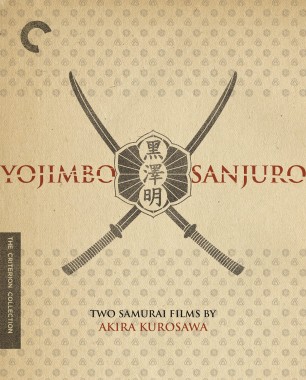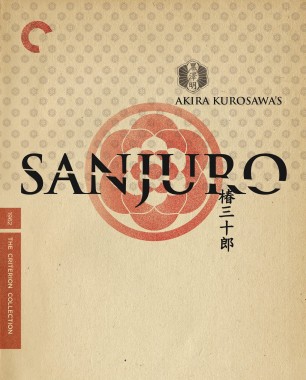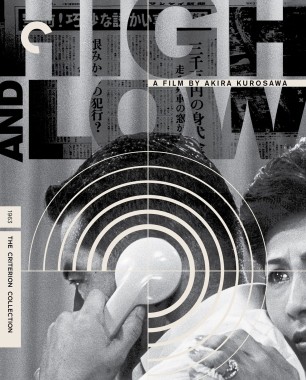Yojimbo

The incomparable Toshiro Mifune stars in Akira Kurosawa’s visually stunning and darkly comic Yojimbo. To rid a terror-stricken village of corruption, wily masterless samurai Sanjuro turns a range war between two evil clans to his own advantage. Remade twice, by Sergio Leone and Walter Hill, this exhilarating genre-twister remains one of the most influential and entertaining films of all time.
Special Features
- New, restored high-definition digital transfer, with uncompressed monaural soundtrack
- Optional Dolby Digital 3.0 soundtrack, preserving the original Perspecta simulated-stereo effects (DTS-HD Master Audio on the Blu-ray edition)
- Audio commentary by film historian and Kurosawa scholar Stephen Prince
- Documentary on the making of Yojimbo, created as part of the Toho Masterworks series Akira Kurosawa: It Is Wonderful to Create, featuring Kurosawa, actor Tatsuya Nakadai, production designer Yoshiro Muraki, and longtime Kurosawa collaborator Teruyo Nogami
- Theatrical teaser and trailer
- Stills gallery of behind-the-scenes photos
- PLUS: An essay by film scholar Alexander Sesonske and comments from Kurosawa and his cast and crew
Cover by Lucien S. Y. Yang
Collector's Sets
Special Features
- New, restored high-definition digital transfer, with uncompressed monaural soundtrack
- Optional Dolby Digital 3.0 soundtrack, preserving the original Perspecta simulated-stereo effects (DTS-HD Master Audio on the Blu-ray edition)
- Audio commentary by film historian and Kurosawa scholar Stephen Prince
- Documentary on the making of Yojimbo, created as part of the Toho Masterworks series Akira Kurosawa: It Is Wonderful to Create, featuring Kurosawa, actor Tatsuya Nakadai, production designer Yoshiro Muraki, and longtime Kurosawa collaborator Teruyo Nogami
- Theatrical teaser and trailer
- Stills gallery of behind-the-scenes photos
- PLUS: An essay by film scholar Alexander Sesonske and comments from Kurosawa and his cast and crew
Cover by Lucien S. Y. Yang

Cast
- Toshiro Mifune
- Kuwabatake Sanjuro
- Tatsuya Nakadai
- Unosuke
- Yoko Tsukasa
- Nui
- Isuzu Yamada
- Orin
- Daisuke Kato
- Inokichi
- Seizaburo Kawazu
- Seibei
- Takashi Shimura
- Tokuemon
- Hiroshi Tachikawa
- Yoichiro
- Yosuke Natsuki
- Kohei’s son
- Eijiro Tono
- Gonji
- Kamatari Fujiwara
- Tazaemon
- Ikio Sawamura
- Hansuke
- Atsushi Watanabe
- Cooper (casket maker)
- Susumu Fujita
- Homma
- Kyu Sazanka
- Ushitora
- Ko Nishimura
- Kuma
- Takeshi Kato
- Kobuhachi
- Akira Tani
- Kame
- Tsunagoro Rashomon
- Kannuki, the giant
- Yoshio Tsuchiya
- Kohei
Credits
- Director
- Akira Kurosawa
- Produced by
- Tomoyuki Tanaka
- Produced by
- Ryuzo Kikushima
- Screenplay by
- Ryuzo Kikushima
- Screenplay by
- Akira Kurosawa
- Cinematography by
- Kazuo Miyagawa
- Production design by
- Yoshiro Muraki
- Lighting by
- Choshiro Ishii
- Sound by
- Choshichiro Mikami
- Music by
- Masaru Sato
- Swordplay instructor
- Yoshio Sugino
- Swordplay technique
- Ryu Kuze
A scene from Yojimbo





















